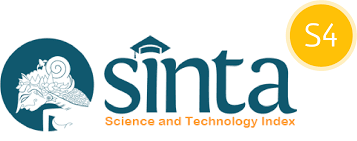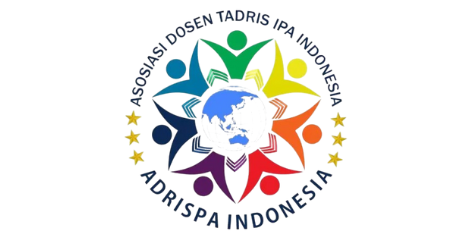Pengaruh Model Pembelajaran Discovery Learning Dalam Meningkatkan Kemampuan Berpikir Kreatif Siswa Pada Mata Pelajaran Ilmu Pengetahuan Alam
DOI:
https://doi.org/10.35719/vektor.v3i2.16Keywords:
creative thinking, discovery learningAbstract
Kemampuan berpikir kreatif melandasi disusunya standar kompetensi dan kompetensi dasar yang tercantum pada badan standar nasional pendidikan tahun 2006. Standar kompetensi (SK) dan kompetensi dasar (KD) disusun sebagai landasan pembelajaran untuk mengembangkan kemampuan berpikir. Kemampuan berpikir kreatif dapat dikembangkan dengan menggunakan metode discovery. Metode discovery adalah cara yang digunakan guru dalam proses belajar mengajar dengan melibatkan pengalaman siswa untuk menemukan sendiri atas jawaban dari masalah yang ada dan guru hanya sebagai fasilitator. Penelitian ini bertujuan untuk mengetahui pengaruh model discovery learnig terhadap kemampuan berpikir kreatif siswa pada mata pelajaran Ilmu Pengetahuan Alam. Dalam penelitian ini menggunakan metode model penelitian semu, Dalam desain ini terdapat dua kelompok yang dipilih, kemudian diberi pre-test atau kuis pertama untuk mengetahui keadaan awal adakah perbedaan antara kelompok A atau pun kelompok B dan terakhir diberikan post-test atau kuis kedua, dan mendapat hasil pre-test sama untuk post-test perbedaan rata-rata skor posttest = 4,4 Terdapat perbedaan yang signifikan kemampuan berpikir kreatif siswa antara yang memperoleh model Discovery learning dengan yang memperoleh pembelajaran konvensional. Dengan demikian model Discovery learning berpengaruh secara signifikan terhadap kemampuan berpikir kreatif siswa
Kata Kunci: berpikir kreatif, discovery learning
The ability to think creatively underlies the basic competency and competency standards listed in the 2006 national education standards body. Competency standards (SC) and basic competencies (BC) are formulated as a learning foundation to develop thinking skills. Creative thinking skills can be developed using the discovery method. The discovery method is a method used by teachers in the teaching and learning process by involving students' experiences to find their own answers to existing problems and the teacher only as a facilitator. This study aims to determine the effect of discovery learning models on students' creative thinking abilities in Natural Sciences subjects. In this study using a quasi-research model method, in this design there are two groups selected, then given a pre-test or first quiz to determine the initial state whether there is a difference between group A or group B and finally given a post-test or second quiz, and get the same pre-test results for the post-test the difference in the average posttest score = 4.4. There is a significant difference in students' creative thinking abilities between those who get the Discovery learning model and those who get conventional learning. Thus the Discovery learning model has a significant effect on students' creative thinking abilities
Keywords: creative thinking, discovery learning
References
Atmawati, Vera. 2012. Perbedaan Hasil Belajar IPA yang Diajar Dengan Metode Ekspositori danMetode Discovery Kelas VII Smp Negeri 2 Tuntang Kabupaten Semarang. Skripsi.Fakultas Keguruan dan Ilmu Pendidikan. Salatiga: Universitas Kristen Satya Wacana.
Badan Standar Nasional Pendidikan. 2006. Sekolah Dasar Standar Kompetensi Dan KompetensiDasar Mata Pelajaran Matematika. Jakarta: Badan Standar Nasional Pendidikan.
Cintia, N. I., Kristin, F., & Anugraheni, I. (2018). Penerapan model pembelajaran discovery learning untuk meningkatkan kemampuan berpikir kreatif dan hasil belajar siswa. Jurnal Perspektif ilmu pendidikan, 32(1), 67-75.
Fauzi, Imron. 2018. Etika Profesi Keguruan. Jember : IAIN Jember Press
Frelberg, H.J. and Driscoll, A. 1992. Universal Teaching Strategies. Boston: Allyn & Bacon.
Gerlach, V.S. & Ely, D.P. 1980. Teaching and Media a Systematic Approach. New Jersey: PrenticeHall.
INDONESIA, P. R. 2006. Undang-undang Republik Indonesia Nomor 14 Tahun 2005 tentang Guru dan Dosen.
Nasional, D. P. 2005. Peraturan Pemerintah Nomor 19 Tahun 2005. Tentang Standar NasionalPendidikan.
Ngermanto, Agus. 2001. Quantum Quotient Kecerdasan Quantum. Bandung: Nuansa. Peraturan Mentri Pendidikan dan Kebudayaan. 2013. Implementasi kurikulum. Jakarta: RepublikIndonesia.
Rakhmat, Jalaluddin. 2007. Psikologi Komunikasi. Bandung: Remaja Rosdakarya.
Rohim, Fathur, dkk. 2012.Penerapan Model Discovery Terbimbing Pada Pembelajaran Fisika Untuk Meningkatkan Kemampuan Berpikir Kreatif. Physics Education Journal. Vol. 1, No. 1.
Sudarma, M. 2013. Mengembangkan Keterampilan Berpikir Kreatif. Jakarta: Raja Grafindo Persada.
Wahyudi, W., & Siswanti, M. C. (2015). Pengaruh Pendekatan Saintifik Melalui ModelDiscoveryLearning dengan Permainan Terhadap Hasil Belajar Matematika Siswa Kelas 5 SD. Scholaria: Jurnal Pendidikan dan Kebudayaan, 5(3), 23-36.
Downloads
Published
How to Cite
Issue
Section
License
Copyright (c) 2022 Ridwan Yasin, Nasruddin

This work is licensed under a Creative Commons Attribution-ShareAlike 4.0 International License.
Authors who publish with this journal agree to the following terms:
- Authors retain copyright and grant the journal right of first publication with the work simultaneously licensed under the terms of the CC BY-SA 4.0 License that allows others to share the work with an acknowledgment of the work's authorship and initial publication in this journal.
- Authors are able to enter into separate, additional contractual arrangements for the non-exclusive distribution of the journal's published version of the work (e.g., post it to an institutional repository or publish it in a book), with an acknowledgment of its initial publication in this journal.
- Authors are permitted and encouraged to post their work online (e.g., in institutional repositories or on their website) prior to and during the submission process, as it can lead to productive exchanges, as well as earlier and greater citation of published work.







